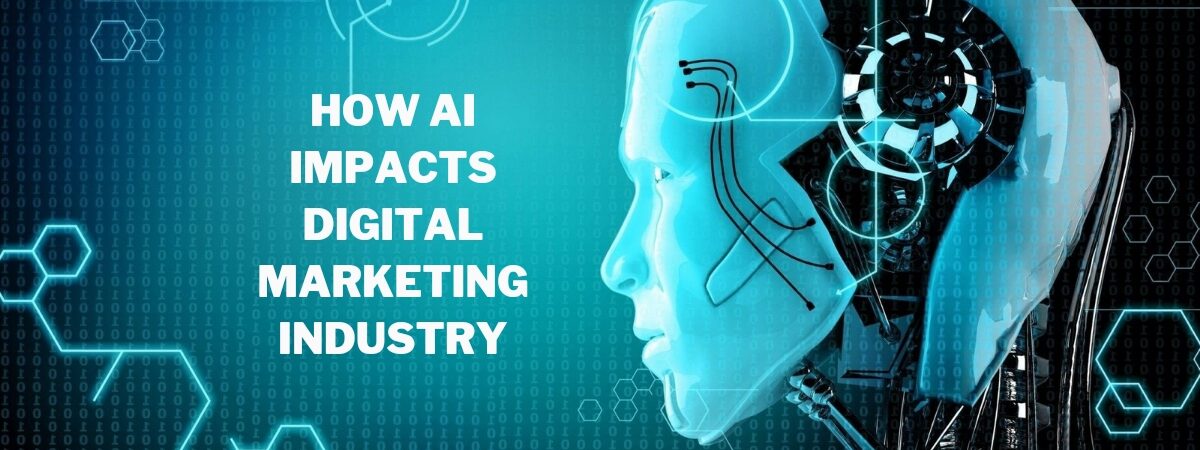Introduction
Artificial Intelligence (AI) has revolutionized various industries, and digital marketing is no exception. The integration of AI into marketing strategies has transformed how businesses engage with customers, optimize campaigns, and drive sales. For a digital marketing agency in Mumbai, leveraging AI can significantly enhance their ability to deliver personalized experiences, analyze vast amounts of data, and improve overall marketing effectiveness. But what exactly is AI in digital marketing, and why is it so significant today? Let’s dive into this fascinating topic.
Understanding AI in Digital Marketing
AI in digital marketing refers to the use of machine learning algorithms and other AI technologies to enhance marketing efforts. These technologies analyze data, predict trends, automate tasks, and provide valuable insights, making marketing more efficient and effective.
AI-Powered Tools in Digital Marketing
AI-powered tools have become indispensable in modern marketing. Here are a few key examples:
- Chatbots and Customer Service: AI chatbots provide instant responses to customer inquiries, enhancing user experience and reducing wait times.
- Predictive Analytics: These tools analyze past data to predict future trends, helping marketers make informed decisions.
- Content Creation Tools: AI-driven platforms can generate content ideas, write articles, and even optimize copy for better engagement.
Benefits of AI in Digital Marketing
AI offers numerous benefits, including:
- Personalization: AI analyzes customer data to deliver personalized experiences, from tailored product recommendations to customized content.
- Efficiency and Automation: Automating repetitive tasks saves time and allows marketers to focus on strategy and creativity.
- Improved Customer Insights: AI tools provide deep insights into customer behavior, helping businesses understand their audience better.
Challenges of AI in Digital Marketing
Despite its advantages, AI in digital marketing also presents challenges:
- Data Privacy Concerns: Collecting and analyzing vast amounts of data raises privacy issues.
- High Implementation Costs: Investing in AI technology can be expensive, particularly for small businesses.
- Need for Technical Expertise: Implementing and managing AI tools requires specialized knowledge.
AI in Personalization
AI takes personalization to a new level by:
- Customized User Experiences: AI algorithms analyze user data to create highly personalized experiences.
- Targeted Advertising: AI identifies the right audience segments for targeted ads, improving ROI.
- Dynamic Content: AI adapts content in real-time based on user interactions, making it more relevant.
AI in Customer Service
AI enhances customer service through:
- Chatbots and Virtual Assistants: These tools provide instant support, answering common queries and solving problems.
- 24/7 Customer Support: AI-powered systems ensure customers receive help at any time.
- Reducing Response Times: Quick responses lead to higher customer satisfaction and retention.
AI in Predictive Analytics
AI-driven predictive analytics help marketers by:
- Understanding Customer Behavior: Predicting customer actions based on past behavior.
- Sales Forecasting: Anticipating future sales trends to adjust strategies accordingly.
- Optimizing Marketing Strategies: Identifying what works and what doesn’t to refine marketing efforts.
AI in Content Creation
AI is revolutionizing content creation through:
- Automated Content Generation: Tools like GPT-4 can generate articles, social media posts, and more.
- Content Curation: AI curates content from various sources to provide fresh and relevant material.
- Enhancing Creativity: AI offers suggestions and ideas, boosting the creative process.
AI in SEO and SEM
AI is crucial in search engine optimization (SEO) and search engine marketing (SEM) by:
- Voice Search Optimization: Adapting content for voice search, which is becoming increasingly popular.
- Smart Ad Bidding: Using AI to optimize ad bidding strategies in real-time.
- Analyzing Search Patterns: Understanding and capitalizing on search trends to improve visibility.
Case Studies of AI in Digital Marketing
Successful examples of AI in digital marketing include:
- Netflix’s Recommendation System: AI algorithms suggest shows and movies based on user preferences.
- Amazon’s Personalized Shopping Experience: AI powers Amazon’s recommendation engine, enhancing user shopping experiences.
- Coca-Cola’s AI-Driven Marketing Campaigns: AI helps Coca-Cola analyze consumer data and create targeted marketing campaigns.
Future Trends of AI in Digital Marketing
Looking ahead, we can expect exciting developments in AI for digital marketing, such as:
- Advanced Personalization Techniques: Even more refined and accurate personalization.
- AI-Driven Video Marketing: Creating personalized video content using AI.
- Integration with Augmented Reality (AR): Combining AI and AR for immersive shopping experiences.
How to Implement AI in Your Marketing Strategy
To leverage AI effectively, follow these steps:
- Identifying Your Needs: Determine what aspects of your marketing can benefit most from AI.
- Choosing the Right Tools: Select AI tools that align with your goals and budget.
- Measuring Success: Track performance metrics to gauge the effectiveness of your AI implementations.
Ethical Considerations of AI in Marketing
As you implement AI, consider these ethical issues:
- Ensuring Transparency: Be transparent about how you use AI and customer data.
- Protecting User Privacy: Implement strong data protection measures.
- Addressing Bias in AI: Ensure your AI systems are fair and unbiased.
Conclusion
AI is transforming digital marketing, offering unprecedented opportunities for personalization, efficiency, and insight. By embracing AI, businesses can stay competitive and deliver exceptional customer experiences. The future of digital marketing is undoubtedly intertwined with AI, making it essential for marketers to stay informed and adapt to these changes.


